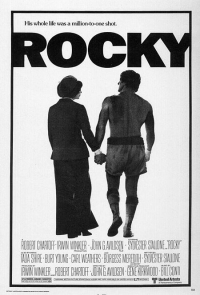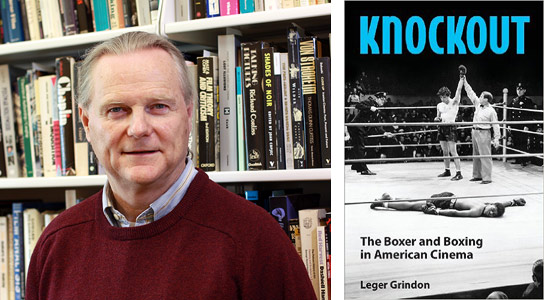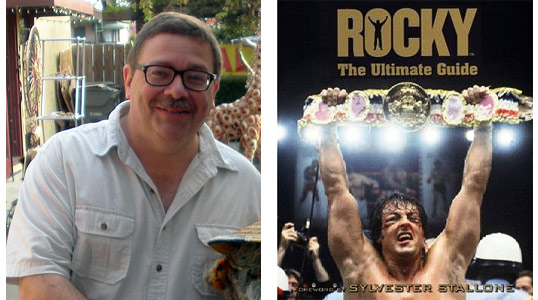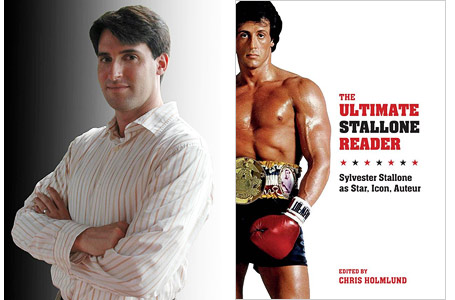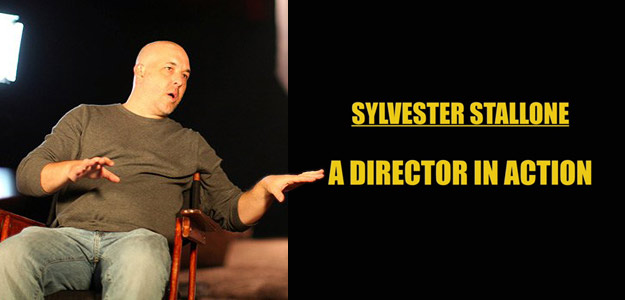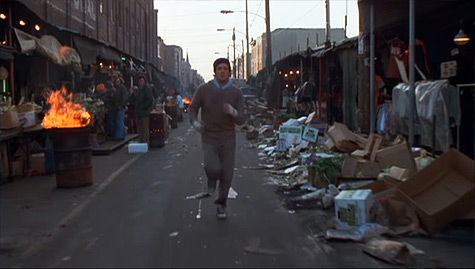
- 1977-03-23 … Helena, MT — Circus Twin (4)
- 1977-03-24 … Victoria, BC — Capitol (10)
- 1977-03-25 … Brownsville, TX — North Park Plaza Twin (4)
- 1977-03-25 … Harlingen, TX — Morgan Plaza Twin (4)
- 1977-03-25 … High Point, NC — Martin Twin (4)
- 1977-03-25 … Lawton, OK — Video Twin (8)
- 1977-03-25 … Naples, FL — Kon Tiki (4)
- 1977-03-25 … Port Arthur, TX — Park Plaza Twin (6)
- 1977-03-26 … Myrtle Beach, SC — Rivoli (9)
- 1977-03-30 … Beaverton, OR — Westgate Triplex (10)
- 1977-03-30 … Flagstaff, AZ — Flag East (4)
- 1977-03-30 … Gallup, NM — Aztec Twin (8)
- 1977-03-30 … Hazleton, PA — Hersker (6)
- 1977-03-30 … Highland, CA — Baseline Drive-In (4)
- 1977-03-30 … Kalispell, MT — Liberty (2)
- 1977-03-30 … Lancaster, CA — Antelope (4)
- 1977-03-30 … Leavenworth, KS — Landing 4-plex (4)
- 1977-03-30 … San Bernardino, CA — Central City Mall 4-plex (17)
- 1977-03-30 … Santa Maria, CA — United Artists Triplex (12)
- 1977-03-30 … Yuma, AZ — Plaza Twin (7)
- 1977-04-01 … Albany, GA — Mall Twin
- 1977-04-01 … Cerritos, CA — Los Cerritos Mall Twin (7 [22]) [moveover from Mall 4-plex]
- 1977-04-01 … Denton, TX — Fine Arts (4)
- 1977-04-01 … Latham, NY — Towne (10)
- 1977-04-01 … Melbourne, FL — NASA (5)
- 1977-04-01 … Panama City, FL — Florida Triplex (9)
- 1977-04-01 … Rochester, MN — Northbrook Twin
- 1977-04-01 … San Jose, CA — Century 22 Triplex (10 [25]) [moveover from Century 21]
- 1977-04-01 … Wilmington, NC — Oleander Twin (7)
- 1977-04-07 … Portland, OR — Rose Moyer 6-plex (17)
- 1977-04-08 … Charleston, SC — Pinehaven Twin (12)
- 1977-04-15 … Green Bay, WI — Bay (10)
- 1977-04-15 … South Lake Tahoe, CA — Stateline
- 1977-04-15 … Victoria, TX — Uptown (3)
- 1977-04-20 … Saugus, CA — Mustang Drive-In (2)
- 1977-04-22 … Danville, VA — Park (4)
- 1977-04-22 … Galveston, TX — Galvez Plaza Triplex (6)
- 1977-04-22 … Texas City, TX — Tradewinds Twin (1)
- 1977-04-27 … Lancaster, CA — Jet Drive-In (2)
- 1977-04-29 … Florence, SC — Crown (4)
- 1977-04-29 … Las Cruces, NM — Video Twin (3)
- 1977-04-29 … Loveland, CO — Orchards Twin (6)
- 1977-04-29 … Stevens Point, WI — Campus (4)
- 1977-05-04 … Milwaukie, OR — Southgate 4-plex (6)
- 1977-05-06 … Battle Creek, MI — Bijou (5)
- 1977-05-06 … Flint, MI — Flint
- 1977-05-11 … Barstow, CA — Barstow Twin (2)
- 1977-05-11 … Lancaster, CA — Lancaster 3-Screen Drive-In (2)
- 1977-05-11 … Victorville, CA — El Rancho Twin (2)
- 1977-05-13 … Anniston, AL — Cheaha Twin (2)
- 1977-05-18 … Eureka, CA — State Triplex (10)
- 1977-05-18 … Ocean City, NJ — Village
- 1977-05-20 … Waycross, GA — Cinema Twin
- 1977-05-25 … Barstow, CA — Skyline Drive-In (1)
- 1977-05-25 … Palmdale, CA — Palace (1)
- 1977-05-25 … Victorville, CA — Joshua Drive-In (1)
- 1977-05-27 … Dartmouth, NS — Penhorn Mall Triplex (5)
- 1977-05-27 … Galesburg, IL — Orpheum (5)
- 1977-06-01 … California City, CA — Showcase (1)
- 1977-06-03 … Columbus, IN — Crump (3)
- 1977-06-10 … San Jose, CA — Century 25 Twin (10 [35]) [moveover from Century 22]
- 1977-06-24 … Traverse City, MI — State (6)
- 1977-06-29 … Anchorage, AK — Totem Triplex
- 1977-08-14 … Fairbanks, AK — Goldstream Twin (2)
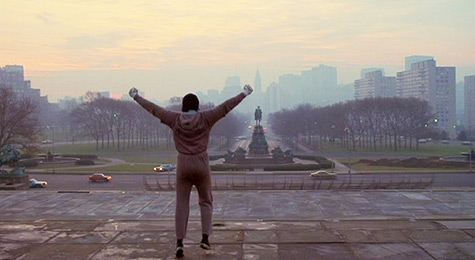
THE Q&A
Leger Grindon is the author of Knockout: The Boxer and Boxing in American Cinema (University of Mississippi Press, 2011). He is a professor of film studies at Middlebury College in Vermont. His other books include The Hollywood Romantic Comedy: Conventions, History, Controversies (Wiley-Blackwell, 2011) and Shadows on the Past: Studies in the Historical Fiction Film (Temple University Press, 1994). Leger is currently writing a book on contemporary documentary film.
Edward Gross is the author of Rocky: The Ultimate Guide (DK, 2006). He is a veteran entertainment journalist who has been on the editorial staff of a wide variety of magazines, among them CFQ, Cinescape, Geek, Life Story, Movie Magic, Sci Fi Now, SFX, and Starlog. His other books include (with Mark A. Altman) The Fifty-Year Mission: The Complete, Uncensored, Unauthorized Oral History of Star Trek (St. Martin’s, 2016), Above & Below: The Unofficial 25th Anniversary Beauty and the Beast Companion (BearManor Media, 2012) and (with Joe Russo and Larry Landsman) Planet of the Apes Revisited (St. Martin’s, 2001). Currently Edward serves as Executive Editor of Empire Magazine’s empireonline.com/us.
Eric Lichtenfeld is the author of I, of the Tiger, an in-depth study of the Rocky series published in The Ultimate Stallone Reader: Sylvester Stallone as Star, Icon, Auteur (edited by Chris Holmlund, Wallflower, 2014). He has taught or spoken about film at the Academy of Motion Picture Arts and Sciences, the American Cinematheque, Loyola Marymount University, UCLA, Wesleyan University, and the Harvard School of Law. His other book is Action Speaks Louder: Violence, Spectacle, and the American Action Movie (Wesleyan, 2007).
Cliff Stephenson is the producer of Sylvester Stallone: A Director in Action (which is featured on The Expendables: Extended Director’s Cut). He is the owner of Off the Cliff Productions and has produced Value Added Material for numerous DVD and Blu-ray releases, including The Hunger Games, Rambo (2008) and the Hannibal television series.
The interviews were conducted separately and have been edited into a “roundtable” conversation format.
---
Michael Coate (The Digital Bits): In what way is Rocky worthy of celebration on its 40th anniversary?
Leger Grindon: Rocky has had a significant impact on contemporary Hollywood in 1976 and beyond. The success of Creed last year with a worldwide theatrical box office of over $170 million on a budget of $35 million is a testimony to its continuing drawing power. Rocky remains one of the most significant “sleeper” hits in modern Hollywood. On a budget of about a million dollars and a fairly simple plot the film won lavish critical praise and established a long series of big commercial hits. Low budget, independent filmmakers have been looking to Rocky as an example of a film that doesn’t need a big budget, glamorous stars or special effects to make an impact on an audience. The recent release, Bleed for This, is yet another low budget child of Rocky…. Rocky is a film that addresses the sensibility of the frustrated, embattled white working class man and woman who only a few weeks ago made Donald Trump President. Paulie is an important character in developing this vision of working class life. In that sense it still speaks vividly to the conflicts and tensions in today’s America.
Edward Gross: When you think of enduring franchises, usually it’s things like James Bond, Star Wars, Star Trek. But a low budget movie about a boxer looking for his shot in life? And which remains so relevant all these decades later, even being reborn in the form of Creed? How is something like that not worthy of celebration? The story of Rocky touched audiences four decades ago and continues to do so today.
Eric Lichtenfeld: Rocky deserves to be celebrated first because of how it’s always made people feel: capable and empowered. Then there’s the fact that it’s also a cultural landmark. Rocky gave us the fanfare, the song, and the proper use of the Philadelphia Museum of Art’s front steps — and for better or worse, the sequels. Rocky is a classic in its own right, but it’s also the cornerstone of a franchise that helped define an important period in American culture, a period that formed many of the film people I know.
Cliff Stephenson: Rocky, on so many levels, is iconic. It’s transcended being just a movie and has become part of the fabric of our culture. Whether it’s lines from the movie or the Bill Conti themes, even if people have never seen Rocky, they know Rocky. Not many films have left as deep a footprint or created so many ongoing ripples as Rocky has. The character has been a staple in our lives fairly consistently for 40 years. You don’t maintain that popularity consistently over 40 years unless you’ve created something very, very special.
Coate: Can you describe what it was like seeing Rocky for the first time?
Grindon: I thought the film was rather old fashioned in its style and emotions compared to the many more innovative films during the 1970s, such as The Godfather, Nashville or Chinatown. I didn’t see it immediately after it opened, but went after it was receiving a lot of critical attention, maybe even after the Academy Award nominations for the year were announced. I thought the film’s emotional impact was effective and the ending brought the movie to a rousing conclusion. However, I was offended by the harsh treatment of blacks, the latent racism, in the film, especially when Rocky loses his locker to an up and coming African-American fighter or when the black newswoman interviews Rocky. Of course, Apollo Creed is a thinly veiled treatment of Muhammad Ali. Obviously the later films in the series attempt to back off from this.
Gross: I was sixteen years old when I saw Rocky for the first time. Really just getting started in life, and that movie genuinely made me believe that anything was possible if — as corny as it sounds — you believed in yourself. Now granted it’s not the same thing as stepping into a boxing ring, but 40 years later and I’m at a point where I have spent the vast majority of my life working as a professional entertainment journalist, continuing to live the dream I had as a teen. And as a side note, when Rocky Balboa was released in 2006, I was 46 years old, at a very different stage in my life, and damn it if that film didn’t inspire me as well to believe in the road ahead.
Lichtenfeld: I first saw Rocky so long ago, at such a young age, and have seen it so many times since, that I don’t remember what that first time was like. I’m sure I only really appreciated the outlines of it: the underdog, David-and-Goliath aspects of it. It was later that I saw how much more there is to the movie than just those mythic qualities — in depth, but also in breadth.
Stephenson: I remember seeing Rocky II in 1979 before seeing the original. The original I eventually saw on cable in the early 80s. Remember, Rocky was released at the dawn of both the home video and cable TV era, so unless it was in a release there wasn’t a way to see it easily. So, for me, seeing Rocky for the first time didn’t have that emotional impact that I’m sure it had on those who were able to see it in its original run.
Coate: How is Rocky significant as a sports movie?
Grindon: Boxing films have a long history of being the most successful of sports films and Rocky is a vivid case in point. I think it is partly because of the focus on the single boxer and the limited, but intense drama in the boxing ring. The boxer’s agony and overcoming suffering is a central issue that exercises a strange attraction in boxing films. Furthermore, there is a distinguished history to draw upon from both literature and the cinema. There would be on Rocky without On the Waterfront (1954) and no On the Waterfront without Golden Boy or Hemingway’s Fifty Grand.
Gross: I am not a sports guy at all, but for me the significance of Rocky is that it didn’t matter. The boxing, albeit a highlight of the film, wasn’t its driving, emotional force. It was the love story between Rocky and Adrian, and the journey of this guy who just wanted to prove he wasn’t another bum from the neighborhood. Truth be told, and I’m not sure if this is common or not, that film did turn me into a boxing fan.
Lichtenfeld: It’s certainly thought of as one of the great sports movies — but I’m not sure that it even is a “sports movie” per se. It actually has less to do with boxing than a person might expect. There isn’t even that much boxing in the final fight! To me, Rocky is more like a drama and a portrait of a place and time that wears the clothes of a sports movie. Rocky doesn’t even get the challenge from Apollo’s promoter until an hour into the movie. I think that alone is a big tip-off that this movie isn’t really about what it might seem to be about…. In fact, most of the movie’s first half is taken up with Rocky wandering around a socially and economically depressed Philadelphia. To me, that makes it a lot like the neorealist movies that came out of post-World War II Italy — movies that used loose plots, lots of actual locations, and often times, an unpolished visual style to create slices of life against a battered socioeconomic backdrop. So I think Rocky can be categorized just as much in those terms as it can be in terms of the sports film genre, as strange as that may sound.
Stephenson: The interesting thing is that I don’t consider Rocky a sports movie. It’s a drama where the main character happens to be a boxer. Stallone’s genius, and why the series works so well as a whole, is that Rocky’s success or failure has really nothing specific to do with a specific sport. The drive to “go the distance” could be placed against a backdrop of just about anything and still resonate with audiences. Rocky could have been a race car driver or a business man or a politician and the underlying theme of endurance and pushing to get the most out of yourself would remain the same. It’s just that sports represents the cleanest through-line of going the distance. It could be about a spelling bee. That’s the power of Rocky’s storytelling.
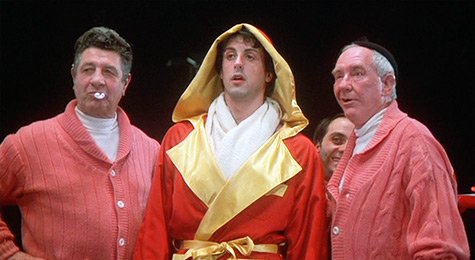
Coate: Where do you think Rocky ranks among John Avildsen’s body of work?
Grindon: I think most people would agree that Rocky is his most successful film, but the author of this film is Sylvester Stallone.
Gross: Right below Rocky V. Kidding! It’s the top of the list for me. Many of Avildsen’s films have a Capra-esque quality to them — we’ve also seen it in things like The Karate Kid and Lean on Me — and when they work, they genuinely connect with the audience. But none of them have worked and remained as relevant as Rocky.
Lichtenfeld: I haven’t seen all of Avildsen’s movies, but the ones I have seen don’t match Rocky — though the better-known ones followed Rocky’s template to one degree or another. The Karate Kid is the best example, doing everything it sets out to do very well. I haven’t seen it in about a decade, but as recently as ten years ago, it seemed to hold up. And it obviously inherited a lot from Rocky. It just didn’t inherit everything. In all fairness, though, I don’t know if any movie could. Rocky is just a nearly perfect convergence of story, style, character, performance, place, and moment in time — even if it wasn’t Avildsen who was solely or even primarily driving that. Rocky is just one of those lightning-in-a-bottle movies.
Stephenson: You know, Avildsen is an interesting director in that I don’t think he left much of a wake behind him. He was responsible for directing what are arguably the best (Rocky) and worst (Rocky V) films in the series. If you take out the Karate Kid and Rocky films, I don’t think most film fans could name five other movies he directed. I don’t mean that as a slight on him, but simply to point out that most of the films he chose to helm throughout his career never connected in the way that the original Rocky or The Karate Kid did. I watched Karate Kid Part II again recently, and I was struck by how uninspired it is. I always remembered it being good, but that was obviously a feeling clouded by nostalgia. But I think that speaks to Avildsen’s career as a whole... uninspired except for these two very specific lightning strikes. Again, this all sounds incendiary toward Avildsen; most directors could only dream of having two such hits on their resume, but I think this is a case where Rocky gave as much (or more) to Avildsen than Avildsen gave to Rocky. His early filmography showed promise, but he seemed to drift after Rocky into a career that never really found itself again. What Avildsen really brought to Rocky was this gritty underdog spirit that sort of permeated his early work. I think Avildsen’s real legacy will be the genius casting and creation of the original Karate Kid, but I think Rocky will always belong to Stallone.


